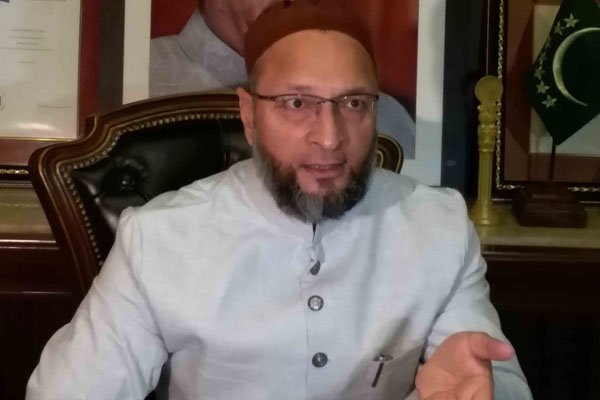In a significant development highlighting the ongoing debate surrounding the implementation of the Citizenship Amendment Act (CAA) and its impact on minority communities, Lok Sabha MP and AIMIM chief, Asaduddin Owaisi, raised pertinent questions regarding the fate of 1.5 lakh Muslims allegedly left out of the National Register of Citizens (NRC) list in Assam after the CAA was implemented in the state.
Addressing a public meeting in Hyderabad, Asaduddin Owaisi expressed concerns over the exclusion of Muslims from the NRC list, particularly in light of statements made by Assam Chief Minister Himanta Biswa Sarma regarding the granting of Indian citizenship to Hindus left out of the NRC under the provisions of the CAA. Owaisi questioned the disparity in treatment between Hindu and Muslim individuals excluded from the citizenship list, emphasizing the need for equal protection under the law for all communities.
The AIMIM chief highlighted the challenges faced by Muslims who were excluded from the NRC list, noting that they would be required to prove their descent by tracing their ancestry back to 1962 or even 1951 at the Foreigners’ Tribunal. He criticized the arduous process imposed on these individuals, including the demand for extensive documentation and birth certificates of their grandfathers, which could potentially lead to legal battles at the tribunal.
Moreover, Asaduddin Owaisi expressed skepticism regarding assurances from government officials that nothing would happen immediately, emphasizing the potential consequences of delayed action on the issue. He drew attention to statements made by Home Minister Amit Shah regarding the implementation of the National Population Register (NPR) and NRC, urging vigilance against discriminatory practices targeting minority communities.
Referring to the NRC exercise conducted in Assam under the supervision of the Supreme Court, Owaisi highlighted the significant number of individuals, both Hindus and Muslims, who were excluded from the final list. He underscored the need for a fair and impartial process that upholds the rights of all individuals, regardless of their religious affiliation.
While expressing openness to granting citizenship to persecuted minorities from neighboring countries, Owaisi emphasized the importance of a non-discriminatory approach based on religion. He advocated for a comprehensive and inclusive citizenship policy that considers the plight of all refugees and migrants, irrespective of their faith.
Meanwhile, the Union Home Ministry notified the rules for the implementation of the Citizenship Amendment Act, which aims to confer Indian citizenship to persecuted non-Muslim migrants from Bangladesh, Pakistan, and Afghanistan who arrived in India before December 31, 2014. However, the Supreme Court is set to hear multiple pleas seeking a stay on the implementation of CAA rules, indicating ongoing legal challenges to the controversial legislation.
As the debate surrounding the Citizenship Amendment Act continues to unfold, voices like Asaduddin Owaisi’s highlight the need for a nuanced and inclusive approach to citizenship and immigration policies. The concerns raised by Owaisi underscore the importance of protecting the rights of marginalized communities and upholding the principles of equality and justice for all citizens.














